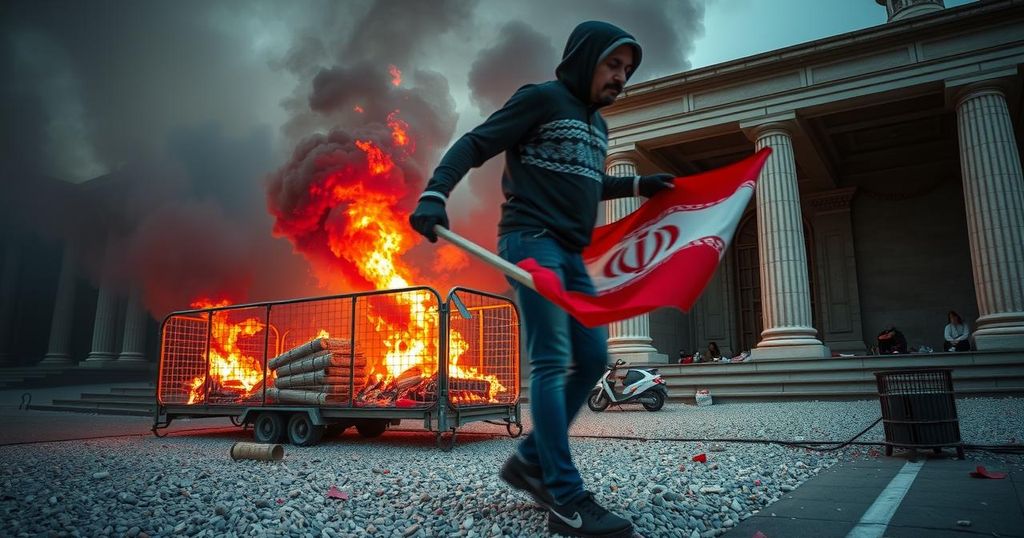Growing public discontent in Iran is fueled by severe economic hardships, including rampant inflation and power shortages, linked to the regime’s alleged misallocation of $50 billion to Syria. Researcher Benny Sabti noted that the public largely opposes the regime, hoping for external changes, while expressing fears over the regime’s potential responses to unrest. The economic crisis persists as living conditions deteriorate, prompting some citizens to protest despite the risks involved.
Recent reports indicate an upsurge of public dissent in Iran due to increasingly dire economic conditions, marked by rampant inflation and widespread electricity shortages. Benny Sabti, a researcher at the Institute for National Security Studies, discussed the public’s growing impatience with the regime for allegedly misusing approximately $50 billion allocated to Syria since the year 2000, which many citizens believe has vanished without a trace. Sabti emphasized that this misallocation has further exacerbated the perception of government failure among the populace.
The Iranian citizenry, largely disillusioned with the ruling regime, finds a glimmer of hope in recent geopolitical shifts, particularly pointing to the notable implications of Hamas leader Ismail Haniyeh’s elimination and the instability in Gaza. Sabti highlighted that 80% of Iranians reportedly oppose the current regime, a sentiment reflected in the poor voter turnout in recent electoral exercises.
Iran faces crippling power outages that frequently last from six to seven hours nationwide, leading to extensive water shortages and heightened air pollution due to inadequate heating solutions. Sabti provided a bleak picture of daily life, where authorities sometimes restrict movements to maintain order during extreme weather conditions. Additionally, reports indicate a surge in the unemployment rate to an alarming 35%, further stoking public discontent.
While small-scale protests have emerged, they have not yet escalated into a larger uprising. However, these protests still cause concern for the government, prompting them to conduct drills in preparation for potential demonstrations. Sabti articulated the regime’s anxious posture, stating, “They understand that things are very fragile.”
In a state marked by soaring inflation, the value of the Iranian rial has plummeted compared to the dollar, complicating imports and deepening the economic crisis. Sabti noted that many Iranians express a willingness to endure their plight in hopes of geopolitical changes that might weaken the regime, including a potential return of former U.S. President Donald Trump to the political stage.
Sabti ultimately concluded with a stern prediction, indicating that the confluence of events marks a critical juncture for Iran’s future, pointing out that the regime’s ambitions for nuclear capabilities may be self-destructive. “It’s suicide,” he remarked, underscoring the precarious situation the Iranian government finds itself in.
The socio-political climate in Iran has been increasingly fraught due to escalating economic pressure and dissatisfaction with the government’s fiscal priorities. Economic hardships, particularly the misappropriation of funds and incessant inflation, have prompted heightened scrutiny and unrest among the Iranian populace. The government’s investments in foreign conflicts, notably in Syria, have been met with rising public resentment, as citizens demand accountability for their struggles amidst dire living conditions.
The Iranian landscape is undergoing significant transformation as public discontent mounts in response to severe economic challenges and government mismanagement. The historical misallocation of billions of dollars to external conflicts, coupled with dire domestic conditions, has fostered an environment ripe for dissent. As citizens rally for change and hope for external intervention, the regime’s future remains uncertain amidst rising tensions and potential upheavals.
Original Source: www.jpost.com






